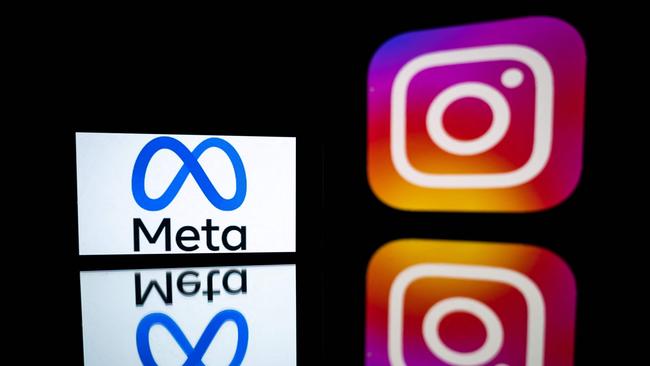‘Too creepy’: new research blasts Facebook ads
New research has found Australians are increasingly distrustful of companies that advertise on Facebook and other social media platforms.

Almost half of Australians find advertisements on social media platforms – including Meta’s Facebook and Instagram – “creepy” and believe that the tech giants are surveilling them, according to new research.
A study from advertising tech outfit The Trade Desk has revealed increasing scepticism of how Meta and other tech companies harvest personal data, with only about 10 per cent of Australians now trusting brands that advertise on social media platforms.
Meta – which has a market value of $US1.26 trillion ($1.93 trillion) – monitors users’ online activity to deliver personalised advertisements on its platforms. For example, if someone had been searching for a refinancing deal on the internet, their Instagram feed could suddenly become filled with advertisements from the big banks and other lenders.
The practice has attracted heavy criticism, with the Ireland’s Data Protection Commission fining Meta €390m ($647.3m) last year, finding that the company violated EU privacy laws by saying such ads are necessary to execute contracts with users. Meta is appealing the ruling.
James Bayes, Australia and New Zealand vice president of The Trade Desk, said Australian consumers are getting increasingly disgruntled as we head into a more privacy-conscious era.
He said the company’s research highlighted a concerning lack of trust about online data collection and that was now affecting the reputation of companies who advertise on social media platforms.
“The reality is consumer behaviour has changed, expectations from consumers have changed – they’ve levelled up – and the industry needs to meet consumers at that point and move quickly to that point,” Mr Bayes said.
Trade Desk’s research found 46 per cent of Australians find personalised ads on social media creepy and too personal, while about 50 per cent believe that social media ads are “listening” to them, resulting in users moving to and prioritising other online spaces – also known as “the open internet”, which includes news, websites, blogs, video and music streaming service.
Compounding distrust is Meta’s failure to filter out scam advertisements, which aim to fleece Australians out of their savings by impersonating influential figures including Gina Rinehart, Andrew Forrest and Dick Smith.

Texas-based Zimperium, which was formerly backed by Telstra Ventures and protects the mobile devices of US troops, has detected 99,690 scam hits on Meta’s platforms since October last year. This compared with 3344 hits on X (formerly known as Twitter), 11,612 on Telegram and 148 on Reddit.
At the same time, Meta has refused to renew deals to compensate media companies for using their content and has threatened to withdraw mainstream news articles from its platform – a move that will create a $70m annual financial black hole across Australian newsrooms.
Mr Bayes said social media companies operated within “walled gardens”, whereby the operated “closed ecosystems”, owning their own content and distribution platforms with full control of the technology used to target, place and measure ads.
“There is an opportunity for us to create something which is better for consumers which is better for all, that protects advertisers ability to be able to do targeted advertising but also protects importantly the funding for journalism and content across the open internet,” he said.
“We don’t think that those things need to be mutually exclusive. We think that we can have a more transparent conversation with consumers and we’re building the tools to help advertisers and publishers to do that.”
Mr Bayes said 33 per cent of Australians felt more informed and focused on the open internet versus 26 per cent in social media’s “walled gardens”, highlighting the need for advertisers to spend “dollars where it matters most”.
Google has introduced software tools designed to replace cookies, which are a technology that logs the activity of internet users across websites so advertisers can target them with relevant ads.
The Trade Desk has developed a new privacy-conscious identity solution, dubbed Unified ID 2.0, which would preserve the value of relevant advertising and provide an alternative to third-party cookies.
“At the moment, consumers have to manage their preferences with every publisher individually. So I need to remember every publisher that I logged into, what I consented to, you know, did I opt into email or did I opt into targeted advertising, etc?
“But one of the things with Unified ID 2.0 is a centralised consent portal. So I can see all of the different publishers that I have consented to … and I can see what I’ve opted into and I can control my preferences from that centralised, preference centre rather than having to manage all that stuff directly with each individual publisher.”







To join the conversation, please log in. Don't have an account? Register
Join the conversation, you are commenting as Logout